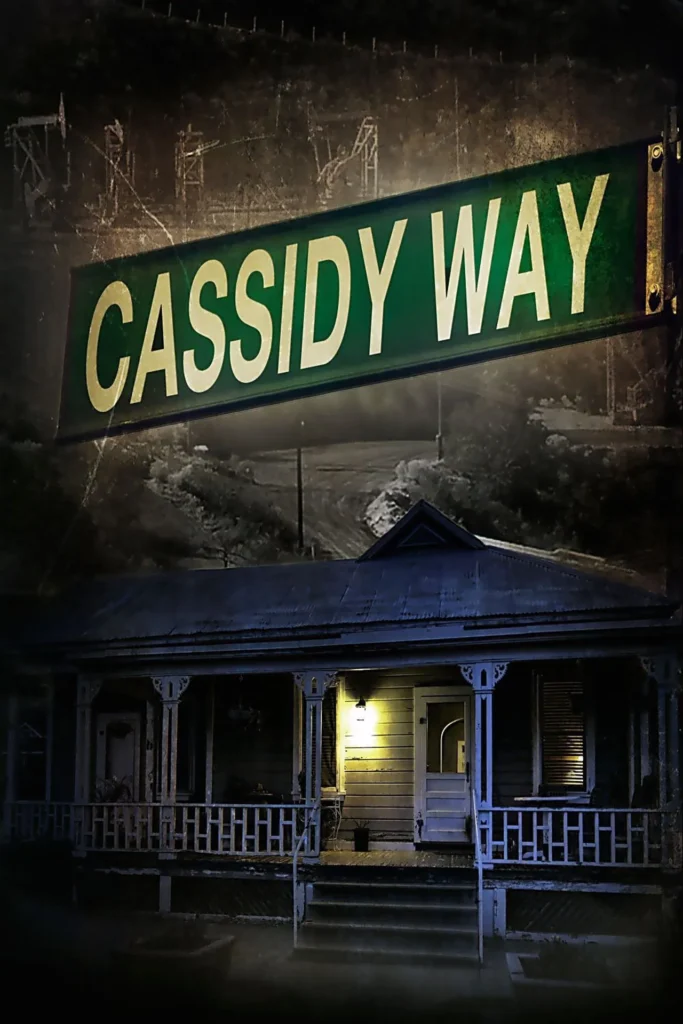
Plot: A Documentary Project Turns Deadly
In Cassidy Way, film student Gina (Nikki Moore) and her colleagues, Collin (Randy Wayne) and Mitch (Michael Nardelli), travel to Kern County to document the environmental and social impacts of hydraulic fracturing, commonly known as fracking. Their investigation leads them to uncover sensitive information about a local fracking company’s dark past. After narrowly escaping a hazardous situation at an abandoned facility, they encounter Jamison Connors (Sean H. Scully), who offers them refuge at his family’s home. Unbeknownst to them, the Connors family harbors deep-seated grievances linked to the fracking industry, particularly the patriarch, Donald (Christopher Rich), whose son’s death is shrouded in controversy. As tensions escalate, the students find themselves ensnared in a perilous ordeal.
Cassidy Way delivers a tense, socially charged thriller that merges environmental activism with psychological horror. What begins as a student documentary quickly unravels into a nightmare of conspiracy, revenge, and moral decay. Through its dusty California landscapes and unsettling silences, the film exposes the human cost behind industrial greed and loss. It’s the kind of gripping, reality-tinged story that finds an eager audience on Goojara movies online watch free, where socially conscious thrillers meet indie grit. Cassidy Way reminds viewers that sometimes the most frightening monsters aren’t supernatural at all — they’re the ones created by anger, grief, and the consequences of what’s buried beneath the surface.
Visual Style: Gritty Realism Reflecting Societal Issues
Director Harvey Lowry employs a grounded visual approach to mirror the film’s real-world environmental and ethical concerns. The cinematography captures the stark landscapes of Kern County, emphasizing the juxtaposition between natural beauty and industrial intrusion. This visual narrative underscores the film’s central themes, immersing viewers in the protagonists’ unsettling journey.
Cast: Portraying Psychological Depth Amidst Crisis
Nikki Moore (Gina): Delivers a compelling performance as an ambitious filmmaker whose pursuit of truth leads her into unforeseen danger.
Randy Wayne (Collin): Embodies the supportive yet cautious friend, highlighting the moral dilemmas faced during investigative endeavors.
Michael Nardelli (Mitch): Portrays the tech-savvy member of the group, whose discoveries act as catalysts for the ensuing conflict.
Christopher Rich (Donald Connors): Captures the torment of a grieving father whose pain manifests in unpredictable and menacing ways.
Sean H. Scully (Jamison Connors): Depicts a complex character torn between familial loyalty and the recognition of escalating violence.
Sydney Sweeney (Kelsey Connors): Provides a nuanced portrayal of a young woman caught in the crossfire of her family’s vendetta and personal morality.
Themes: Unveiling the Human Cost of Environmental Exploitation
Cassidy Way delves into the contentious issue of fracking, shedding light on its potential environmental hazards and the socio-economic ramifications on local communities. The film explores themes of grief, vengeance, and the ethical boundaries of activism, prompting audiences to reflect on the collateral damage of industrial pursuits.
Reception: Divergent Views on Execution and Impact
The film has elicited mixed reactions from critics and audiences. Some commend its attempt to intertwine a topical environmental issue with a suspenseful narrative, while others critique its character development and pacing. The portrayal of the Connors family’s descent into violence has been a focal point of discussion, with opinions varying on its effectiveness and sensitivity.
The Critic’s Verdict
While Cassidy Way ambitiously tackles pressing environmental concerns through the lens of a thriller, it occasionally falters in balancing its message with character depth. Nevertheless, it serves as a thought-provoking piece that underscores the human stories intertwined with industrial controversies.
Rating: 5.5/10
An earnest exploration of fracking’s societal impact, marred slightly by uneven storytelling but bolstered by committed performances.
Pair With
Promised Land (2012) for a dramatic examination of fracking’s ethical dilemmas, or The China Syndrome (1979) for a classic take on investigative journalism uncovering industrial malfeasance.
Cultural Footprint:
By highlighting the personal tragedies linked to environmental exploitation, Cassidy Way contributes to the ongoing discourse on sustainable practices and corporate accountability, resonating with contemporary societal debates.
Additional
Beyond its exploration of environmental controversies, Cassidy Way delves into the psychological deterioration of individuals grappling with profound loss and injustice. The Connors family’s descent into paranoia and violence serves as a poignant commentary on the human psyche’s fragility when confronted with unresolved grief and perceived betrayal. This portrayal adds a layer of depth to the narrative, prompting viewers to consider the personal toll of corporate malfeasance.
Moreover, the film’s release sparked discussions about the portrayal of real-world issues within the thriller genre. Critics have debated the effectiveness of using entertainment mediums to shed light on complex topics such as fracking and its societal implications. While some argue that the film raises necessary awareness, others contend that it simplifies intricate issues, underscoring the challenges filmmakers face when intertwining activism with storytelling.
